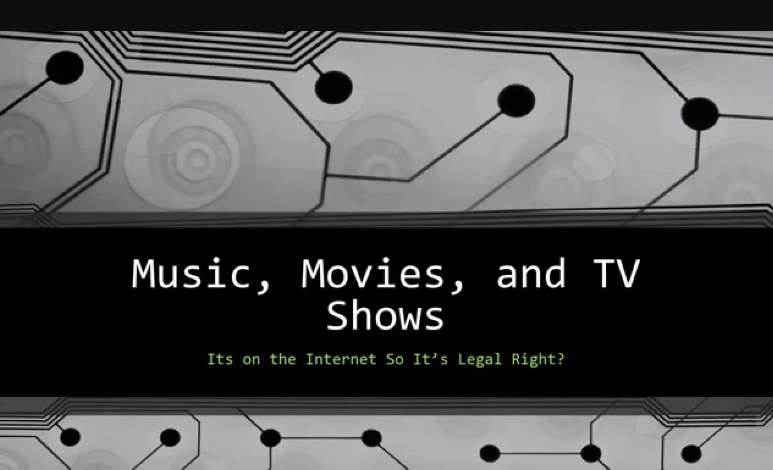Is Free Streaming Legal? Discover the Truth in 2024

Free streaming is illegal and violate copyright laws, leading to potential legal consequences. Engaging in unauthorized streaming could result in fines or legal action.
Streaming content from licensed platforms ensures compliance with copyright regulations and supports content creators. Understanding the implications of utilizing free streaming services to protect against legal issues is essential. By choosing legitimate streaming sources, viewers can enjoy their favourite content legally and ethically while supporting the entertainment industry.
The rise of digital media has made accessing content more accessible, but it is crucial to respect intellectual property rights and adhere to legal streaming practices. Opting for authorized streaming services ensures a safer and more enjoyable viewing experience without the risks associated with illegal streaming.
Contents
The Rise Of Free Streaming
Free streaming services have gained popularity due to convenience and affordability. Many traditional media platforms feel the impact of this shift in consumer behaviour. Viewers may question the legality of accessing content through these free streaming options. Copyright regulations and licensing requirements govern the distribution of digital content. Consumers must be aware of the legal implications of free streaming services. It is crucial to understand the legality of accessing content through these platforms. Content creators and distributors must navigate the legal landscape to protect their intellectual property. Streaming platforms must comply with copyright laws to ensure a sustainable business model.
Legal Implications
Free streaming copyrighted content without authorization is illegal and can lead to severe consequences.
Copyright infringement is a major issue in free streaming, as users access content without proper permissions.
Various laws and regulations exist to address the legality of free streaming, aiming to protect the rights of content creators.
Challenges And Controversies
Free streaming has become a contentious issue, as the legality of such platforms is debatable. While some argue for its legality, others raise challenges and controversies, prompting ongoing discussions about the ethical and legal implications of free streaming.
Free streaming raises ethical concerns and piracy. Illegal streaming poses security risks to users’ personal information and devices. Understanding the legal implications and risks of accessing free streaming content is imperative. Illegal streaming may lead to potential legal consequences, including copyright infringement. Furthermore, free streaming platforms may exploit users’ data without consent. It is essential to prioritize legal and secure digital content access to protect individual and intellectual property rights.
Global Perspectives
Discover the legalities surrounding free streaming in our blog post on Global Perspectives. Gain insights into the regulations governing this popular online activity.
Streaming laws vary significantly between countries. In some places, free streaming might be considered legal under certain circumstances, while in others, it could violate copyright laws. It’s essential to be aware of these variations to understand the legality of streaming content.
International efforts have been made to combat illegal streaming, aiming to protect the rights of content creators and copyright owners. Organizations and agreements such as the World Intellectual Property Organization (WIPO) and the Anti-Counterfeiting Trade Agreement (ACTA) have worked towards establishing guidelines and regulations to address this issue.
However, despite these efforts, whether free streaming is legal remains complex and can’t be definitively answered on a global scale. To determine the legality of streaming content for free, it is necessary to research and comprehend the specific laws in each country.
Variations In Streaming Laws By Country
Different countries have different laws surrounding free streaming. For instance, in some countries, streaming copyrighted content without permission is considered illegal, while others may have more lenient regulations. Understanding the specific legislation in each jurisdiction before engaging in free streaming activities is crucial.
Some countries have implemented strict measures to combat illegal streaming, including legal actions against individuals and platforms facilitating unauthorized streaming. On the other hand, some nations have embraced more relaxed approaches, focusing on educating the public about copyright laws instead. This diversity in legal frameworks adds complexity to the debate on free streaming.
To ensure compliance with the law and avoid potential legal consequences, it is advisable to seek legal advice or familiarize oneself with the streaming regulations in the respective country. Remember, what may be legal in one jurisdiction could be illegal in another.
Enforcement And Prosecution
Streaming copyrighted content for free without proper authorization is typically considered illegal. Enforcement and prosecution of illegal streaming platforms have become more prevalent in recent years. Authorities are taking action against these platforms to protect the interests of copyright owners.
For instance, law enforcement agencies and copyright holders often collaborate to identify and shut down illegal streaming websites, leading to the arrest and prosecution of the individuals behind them. This deterrent aims to discourage others from engaging in similar activities.
While the focus is primarily on the platforms hosting the infringing content, users who stream copyrighted material without permission may also face legal ramifications. In some jurisdictions, individuals caught accessing or distributing copyrighted material through illegal streaming platforms may be subject to fines or criminal charges.
Evolution Of Streaming Services
The Evolution of Streaming Services has significantly shifted towards subscription-based models. This has led to innovations in legal streaming platforms. With the increasing popularity of streaming services, there is a growing concern about their legal aspects. Users often wonder whether free streaming is legal, which has sparked numerous debates.
While free streaming may seem convenient, it often raises questions about its legality. As a result, viewers must understand the legal implications of accessing content through free streaming platforms. In the next sections of this blog post, we will delve deeper into this topic and provide insights into the legality of free streaming.
Impact On Content Creators
Free streaming can have profound legal implications, especially for content creators.
The economic effects can harm creators as their work may be exploited without compensation.
Implementing strategies for protecting intellectual property, such as copyright registration and digital rights management, is essential.
Discover the legal landscape of free streaming and its potential ramifications. Gain insight into its legality and associated legal risks. Understand the nuances of free streaming and how it aligns with legal regulations.
|
Legal Aspect: Free streaming legality depends on copyright, fair use, and public domain laws. |
|
Fair Use: Understanding fair use is crucial to avoid copyright infringement. |
|
Public Domain: Content in the public domain is free to use without restrictions. |
|
Consumer Practices: Consumers should use legal streaming platforms to avoid risks. |
|
Provider Practices: Content providers must adhere to copyright laws to operate legally. |
Conclusion
The legality of free streaming is a complex issue. While some sites may claim to be legal, users should be cautious. Understanding the risks, implications, and potential consequences of streaming copyrighted material is essential. Ultimately, it’s best to prioritize legal and ethical viewing options.



